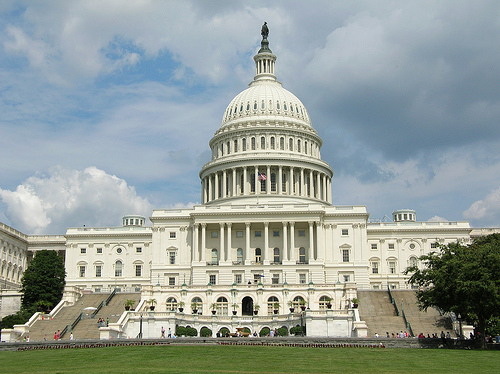Take Action California is a virtual, one-stop, for political activism, action alerts, fact sheets, and events in support of grassroots advocacy throughout the state of California.
Community News
Open dialogue among community members is an important part of successful advocacy. Take Action California believes that the more information and discussion we have about what's important to us, the more empowered we all are to make change.
Monday, June 17, 2013
CALIF. OKS EXPANDED MEDI-CAL TO 1.4 MILLION UNINSURE
Sacramento — The Legislature passed a major piece of the federal Affordable Care Act on Saturday, opting to expand Medicaid to 1.4 million low-income Californians, as it rushed to meet its deadline to complete a state budget.
The action came a day after lawmakers passed the main budget bill outlining a $96.3 billion spending plan for the fiscal year that starts in July.
Saturday’s votes were on a handful of targeted bills. They included ones that would provide college scholarships for middle class families, increase grants for those in the welfare-to-work program, restore dental care for low-income adults, distribute money for school energy projects, and strengthen oversight of the California Public Utilities Commission.
The centerpiece legislation was the expansion of Medicaid, which is called Medi-Cal in California. Broadening the entitlement program to reduce the number of uninsured people in the country is one of the cornerstones of President Barack Obama’s national health care reforms.
Several Democratic lawmakers called Saturday’s vote historic. “We don’t know for certain that this will contain the costs; that’s certainly the goal. But … we also make sure health care is not considered a privilege of the fortunate few but as a basic human right,” said Sen. Mark Leno, D-San Francisco. “That’s what we’re implementing today. This is a big deal.”
Republicans raised concerns about whether California can afford the expansion over the long run, especially once the federal government drops its commitment from 100 percent to 90 percent.
Democrats included a provision in the bill that allows for future lawmakers to reconsider the expansion if the federal government’s share drops below 70 percent.
The federal government will pay the full cost of expanding the low-income health program for the first three years. It’ll reduce payments to 90 percent starting in 2020, putting the rest of the cost on the states that adopt the expansion.
Legislative Analyst Mac Taylor has estimated that by taking on new enrollees, the state could be responsible for between $300 million and $1.3 billion a year starting in 2020. “I worry about expectations that we set out for individuals with ACA in California and having the rug pulled out from underneath us without a funding mechanism,” said Sen. Ted Gaines, R-Rocklin.
Democrats said the expansion would help save lives, keep workers healthy and attract billions of dollars from the federal government into the state. Senate President Pro Tem Darrell Steinberg, D-Sacramento, noted taxpayers and those who have health insurance are paying for the medical care of those who go without insurance. The Medicaid expansion will cover many of those who now receive uncompensated care, he said.
By LAURA OLSON Associated Press 12:01 A.M.JUNE 16, 2013Updated8:04 P.M.JUNE 15, 2013
Labels:
Affordable Care Act,
health care,
health care reform,
legislation,
medi-cal,
medicaid,
Obama Care
Subscribe to:
Post Comments (Atom)

No comments:
Post a Comment